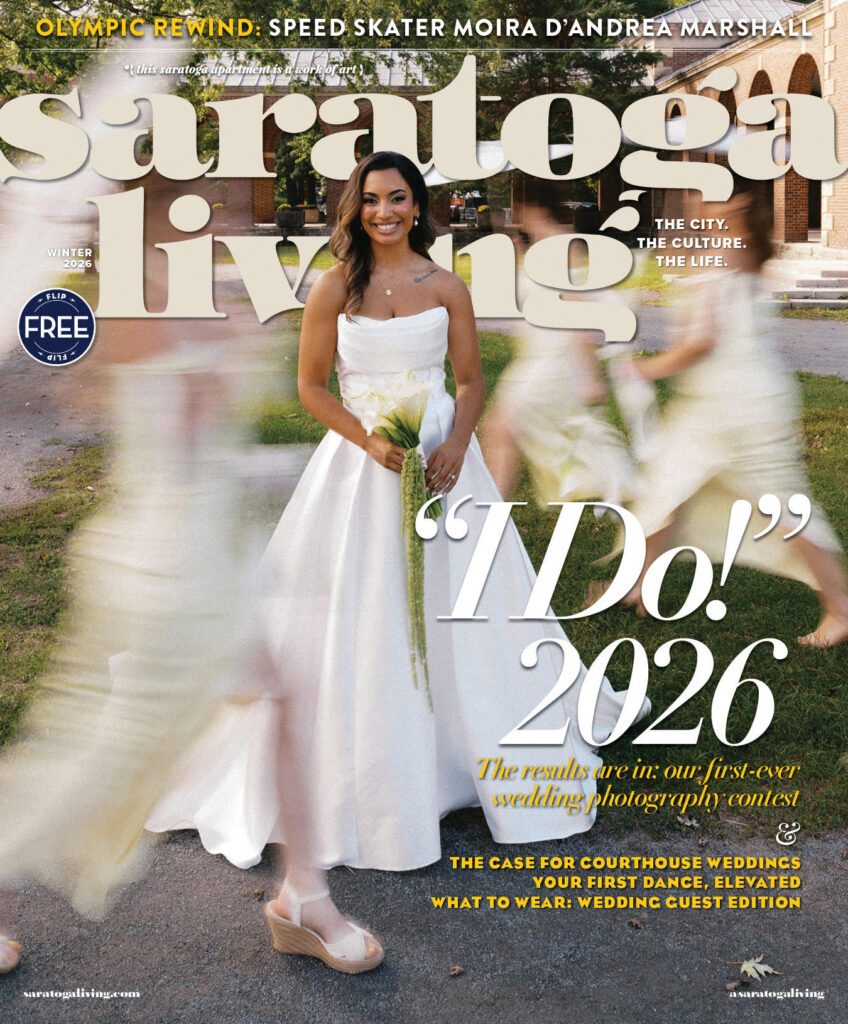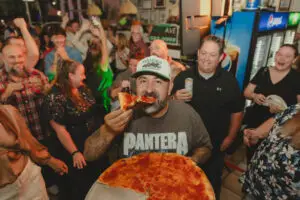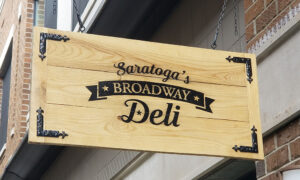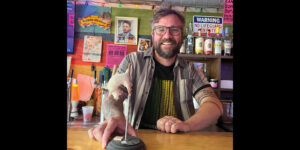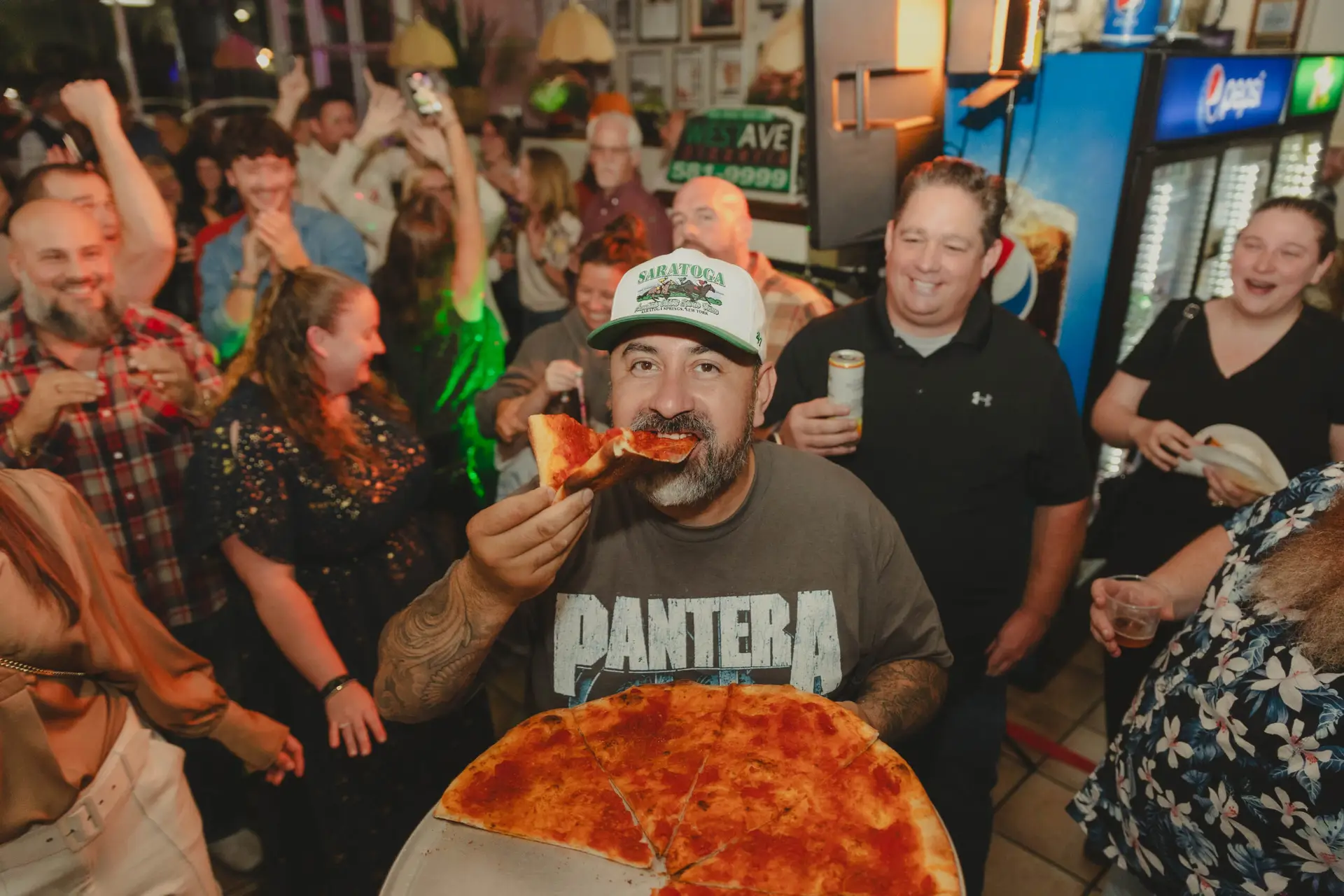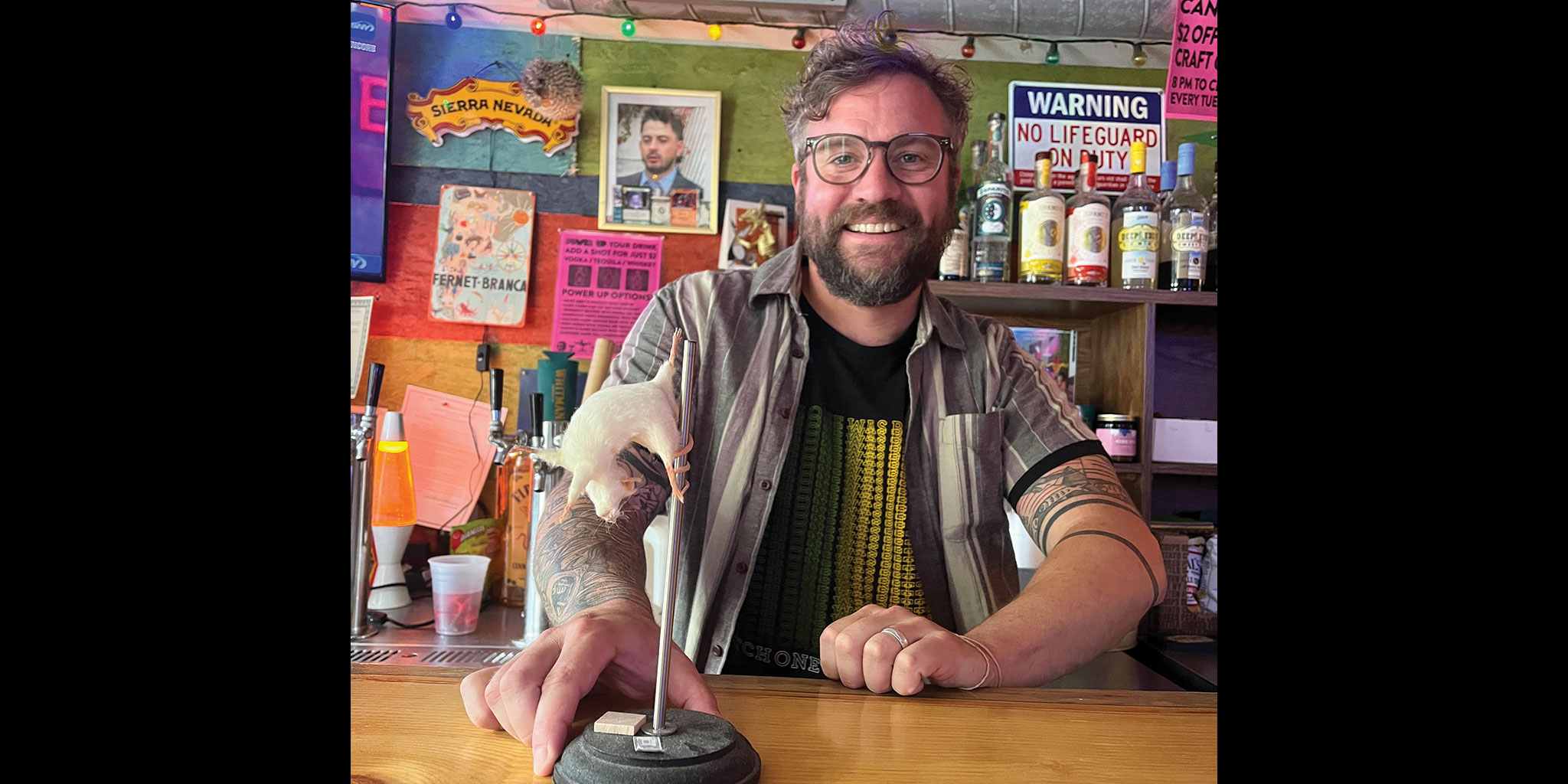The list of great artists who tour through Upstate New York—and have connections to the area—is seemingly endless. (See: The Weepies, Darlingside and Indigo Girls, to name a few.) You can now add another to your list: OG independent rocker and Grammy Award winner Ani DiFranco, who hails from Buffalo, is bringing her Rise Up tour to Albany’s The Egg this Thursday, September 20.
Expect to hear a range of songs and anthems (listen: “32 Flavors” and “Little Plastic Castle“) from DiFranco’s nearly 30-year career, including cuts from her latest album, 2017’s Binary. DiFranco was one of the first artists, male or female, to go completely independent, founding her own record label, Righteous Babe Records, in 1990. Since then, she’s released dozens of live and studio albums, and garnered a Grammy for Best Recording Package for her 2003 album Evolve.
DiFranco is also the founder of the popular Babefest Brooklyn (now in its third year), a festival of music and activism benefiting political nonprofit, EMILY’s List. For those of you who want to see DiFranco twice in as many days, Babefest takes place on Friday, September 21 at the venue Warsaw in Brooklyn (DiFranco headlines a lineup that includes Resistance Revival Chorus and Torres). I recently talked to the indie rocker about what to expect from her upcoming concert and much more.
You’re originally from Upstate New York. Tell me a little bit about your upbringing here.
It was a good place to grow up, Buffalo in the 1970s. I went to a magnet school, and I had a very diverse friend group as a kid. Buffalo’s a good sort of working-class, blue-collar town with beautiful architecture, which I’ve always been inspired by. [A] real old [city] with soul. I feel pretty grateful for my upbringing there.
But the winters are pretty long, though…
[laughs] Oh yeah, but I always appreciate the way harsh winters bring people together. The way they shift the human culture to more solidarity. That kind of vibe when you walk into a building and you stomp your feet and you shake the snow off you, and you breathe a heavy sigh of relief. And everybody else there…you’re survivors together. It brings people closer. All that shoveling each other out keeps you in touch with the reality that yeah, we need each other.
You’re known for your political activism. Your tour is called Rise Up. What are you trying to get people to rise up to do?
A lot of what I’m continuing to try to talk to people about is voting. I think it’s the simplest, easiest, most painless way to rise up. I firmly believe that if we all voted, we would have a very different government, a different country and a different world. All of them better. That’s nothing new for me. I’ve been talking about this for many decades but this is just the latest incarnation. Of course, I feel that these midterm elections—we say it all the time—”[They’ve] never been more crucial,” but this time it is absolutely true. It’s never been more crucial for the future of our democracy that people vote. That people make democracy real again by participating. That is the central point of what I mean by ‘rise up’ right now.
To that point, we have more women running for political office in these upcoming midterms than ever before. Does this feel like another step toward gender equality?
It certainly could be if, once again, people get off their couches on November 6 and get behind some of these candidates who are coming out of the woodwork to diversify the political spectrum. I think we certainly [can] have a sea change if we can be inspired to do the most basic thing, which democracy requires, and that’s exercise your franchise and walk into a voting both on the same day. If we actually can do that, then that [change] is absolutely what we will see.
You were one of the first artists to create your own label back in 1990, way before laptops and all that convenient home recording technology. And you were just 19 at the time. How was that even possible?
There was a lot less accessibility to technology of all sorts that make so many new possibilities in today’s world. So how did I do it? I did it the old-fashioned way. I had to leave my house and spend a good decade on the road, as in trains and Greyhound buses and then my own VW bug, and just going town to town, playing for handfuls of people and building an audience very slowly by word of mouth. One of the things I utilized was a paper mailing list that I put out at my shows right from the beginning. People wrote their addresses by hand, and I sent them snail-mail postcards. And that was my direct-to-fan outreach before the Internet, and it made a huge difference back then.
When you say a decade on the road, do you mean before you founded Righteous Babe Records? How young were you when you started performing?
Well, yeah, I did play a decade before I made my first record. I started playing guitar at nine and I started performing out in bars when I was a kid because I made friends with this sort of local barfly, performer, folksinger in Buffalo, and he just took me under his wing. So I was out learning my craft for a good decade before my “official” beginning. And I would say between the age of 18 and 28, when I really hit sort of mainstream awareness, I had been on the road for another ten years pretty solidly.
You’re an accomplished poet as well. Do you have any new poems or a collection that you’re working on?
Well, I’m just getting back into the swing of songwriting. But as far as new projects, I wrote a book these last couple of years that’s coming out in the spring. So that’s kind of a renegade new endeavor for me. It’s a memoir, well, basically a memoir—you know my style. [laughs] I focus on my early years, just the sort of making of Righteous Babe [and] what it’s like from my perspective. The title is going to be No Walls And The Recurring Dream.







